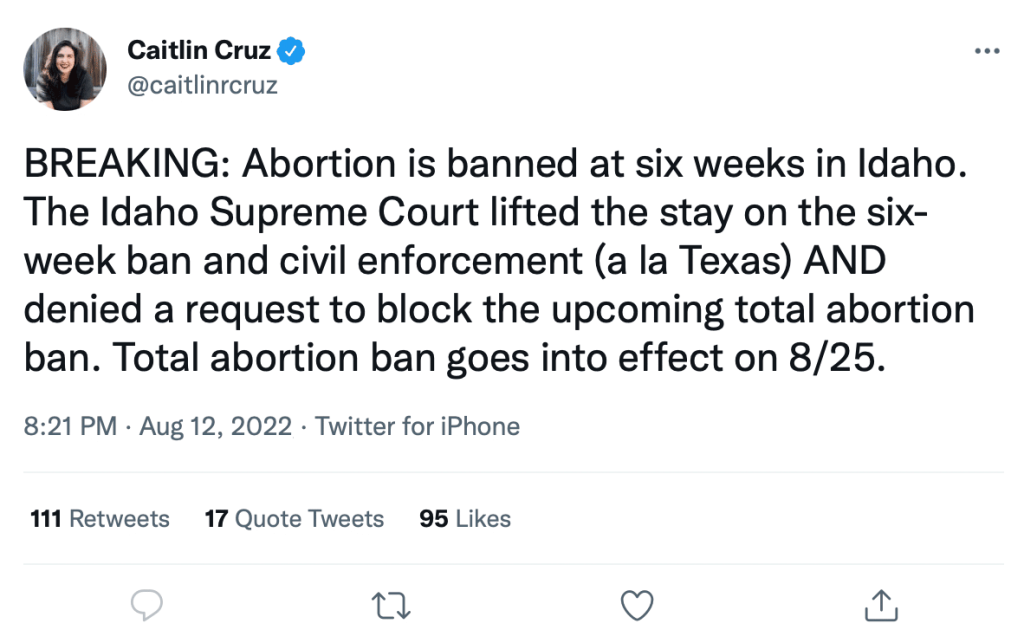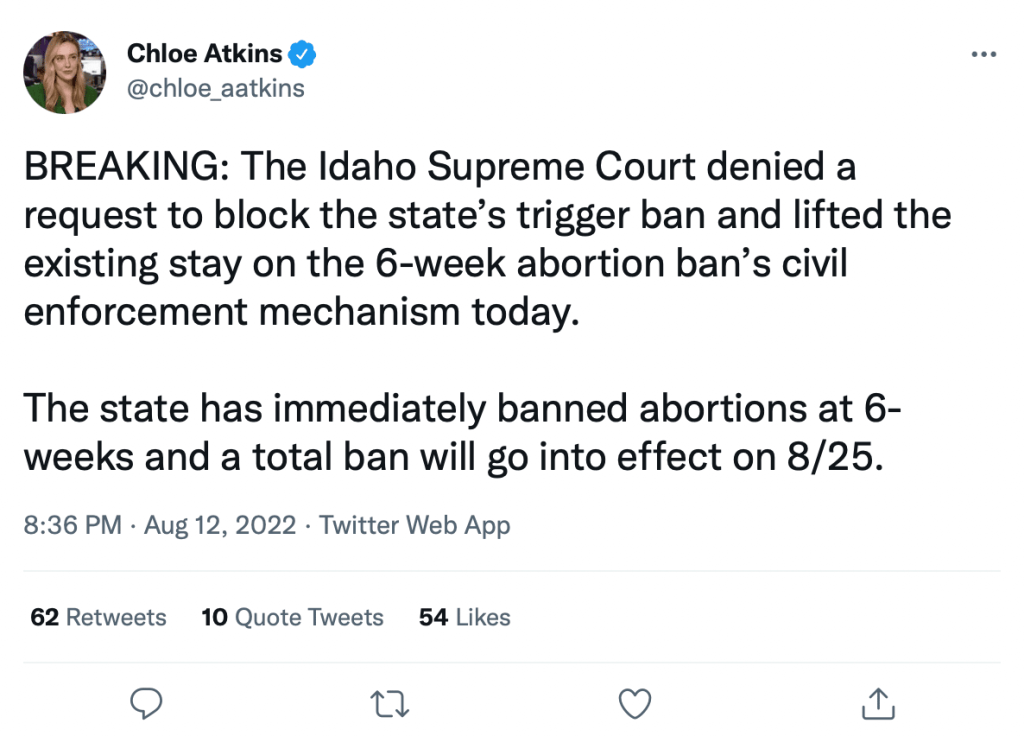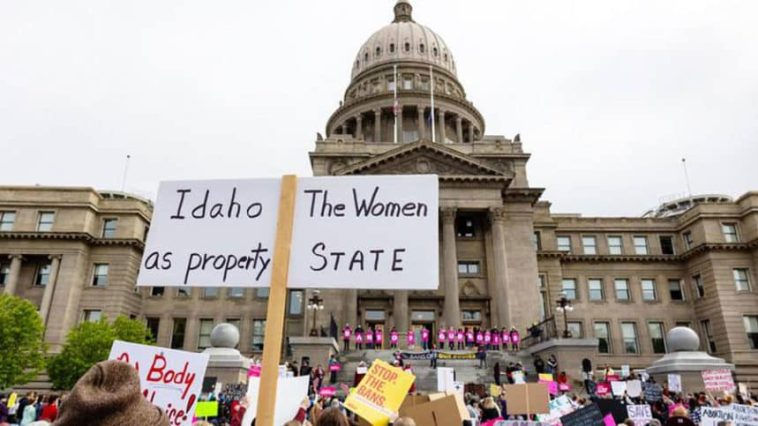The Idaho Supreme Court ruled Friday that the state’s strict abortion ban will be allowed to take effect this month.

The law has posed several legal challenges and the court moved to speed up the timeline of lawsuits.
Idaho was sued by a doctor and a regional Planned Parenthood over three anti-abortion laws.
The abortion provider argued that the ban violates Idahoans’ privacy and equal protection rights under the state’s constitution.
The ruling means that abortion is only allowed in cases of rape, incest or to prevent a pregnant woman’s death.
In addition, “potential relatives of an embryo or fetus can now sue abortion providers over procedures done after six weeks of gestation,” reported Fox News.
Within four years of an abortion, those relatives can sue for up to $20,000. Although rapists cannot sue under the law, their family members would be able to do so.

Another stricter ban criminalizing all abortions is allegedly scheduled for later this month.
Justice Robyn Brody, writing for the court, said Planned Parenthood was not entitled to the “drastic” relief, noting that abortion was illegal in Idaho before the U.S. Supreme Court’s decision to overturn Roe v. Wade.
“What Petitioners are asking this court to ultimately do is to declare a right to abortion under the Idaho Constitution when – on its face – there is none,” Brody said.
Idaho is just one of the many states currently facing challenges surrounding abortion after the overturn of Roe.
The Justice Department announced on Aug. 2 that it was suing Idaho over the abortion ban. “The Justice Department today filed a lawsuit to protect the rights of patients to access emergency medical care guaranteed by federal law,” a statement said.
That lawsuit is set to be argued on Aug. 22 and is the first action taken by the federal government to challenge state abortion laws after Roe was reversed.


